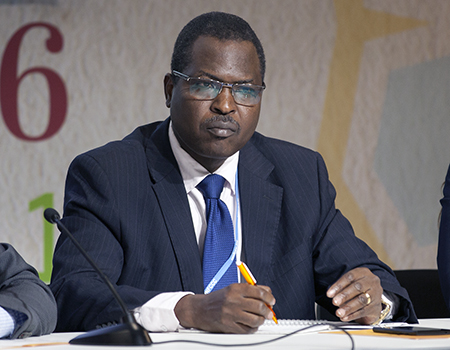Nigeria is developing a national toolkit to integrate the Nationally Determined Contributions (NDCs) into its Economic Recovery and Growth Plan (ERGP), Agenda 2030 and the SDGs, and the Sendai Framework for Disaster Risks Reduction.

The toolkit is aimed at enhancing the implementation the UNDP-NDCs Support Programme in Nigeria.
As party to the United Nations Framework Convention on Climate Change (UNFCCC), Nigeria answered the climate call to reduce national emissions and adapt to impacts of climate change. The call required the submission of NDCs which reflect highlights of national climate actions, policies and measures that each government aims to implement in response to climate change and as contribution to global climate action, considering domestic circumstances and capabilities. In 2015, 196 countries including Nigeria submitted their NDCs to the UNFCCC Secretariat under the Paris Agreement.
Nigeria’s NDCs therefore committed to reduce greenhouse gas emission by 20% unconditionally and 45% conditionally by 2030. Efforts towards these targets led the federal government to develop a Sectorial Plan Action (SAP) with focus on Power, Oil and Gas, Agriculture and Land Use, Transport and Industry sectors to pave way for a sustainable low carbon economy.
At a recent training workshop recently convened in Abuja to build stakeholders’ capacities on developing the national toolkit for the integration of the NDCs and other international initiatives into Nigeria’s existing development plan, the Nigerian government told participants drawn from cross-sectorial organisations that the expected toolkit is aimed to improve cohesion, increase efficiency and minimise potential policy conflicts.
The Director of Climate Change Department at the Federal Ministry of Environment, Dr. Yerima Peter Tarfa, who declared the workshop open stated that the objective of the workshop is to “develop results frameworks for the ERGP which will form the building blocks for development, reduce duplication, promote synergy in implementation, minimise potential policy conflicts, maximise resources, while at the same time enhancing technical capacity, information and expertise sharing”.
This, according to him, will align all national policies and actions into the Nationally Determined Contributions and feed into the national sustainable development agenda of the country.
The United Nations Development Programme (UNDP) is providing support to developing countries including Nigeria, through the UNDP-NDC Support Programme to build capacities of key institutions that will play strategic roles in the implementation of the NDCs and achievement of their targets.
The UN System’s Climate Change Advisor, Mr. Excellent Hachileka, said that countries are expected to review and submit their climate ambitions as expressed in their NDCs every five years from 2015.
“So, UNDP is helping Nigeria to update its NDCs through a programme known as ‘Climate Promise’. This training workshop for the integration of the national and international instruments is therefore coming at an auspicious time because the methodology we are developing will help the country as it is reviewing its NDCs for onward submission before the end of the year.”
Mr Hachileka identified the country’s ERGP as another unique element in Nigeria with the same focus as the NDCs.
“The country’s current tool for national development which is the Economic Recovery and Growth Plan is coming to an end this 2020, having been in progress since 2017. So, Nigeria through its Ministry of Budgeting and Planning is in the process of developing a successor programme for the national economic development plan. That process requires a methodology that will bring together all the three international conventions signed in 2015 viz the NDCs, the Agenda 2030 and the SDGs, and the Sendai Framework.
“A national toolkit is the best platform to harmonize these development instruments with the national development plan ERGP,” he said.
The Project Coordinator, Mr. Huzi Mishelia, listed four key areas that informed the development of a national toolkit and which are crucial for the effective implementation of Nigeria’s NDCs to include:
- Need to develop a robust financial strategy for the implementation
- Need to increase the participation of private businesses in the process
- Need to organise the fragmented available data on climate change activities and produce a data registry for the country
- Need to have a point of convergence for the national and international development initiatives running in the country as they all seek the same objective, which is to evolve a sustainable, robust economy, reduce risks and improve lives
According to Mr Mishelia, a policy document mainstreaming all the international instruments into the country’s national economic development plan which will fit into local circumstances is being developed from the training workshop.
The approach, he said, will have all the key participating organisations including the private sector “identify their mandates and targets for the NDCs, and the indicators so that they can be aligned in the flagship ERGP. Where there are gaps, the second phase of the development programme which is being developed will address them and link the targets to the international instruments – the NDCs, the SDGs, the Sendai Framework for risk reduction, including cross cutting and enablers to ensure that no sector is left behind in the second phase or successor version of the Economic Growth and Recovery Plan”.
The Coordinator disclosed that the national toolkit is expected to be ready before the end of August 2020.
